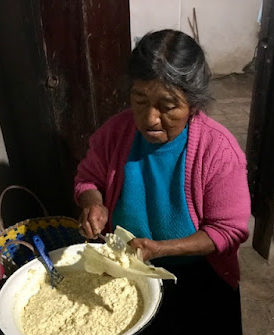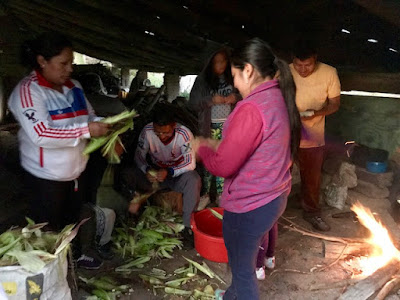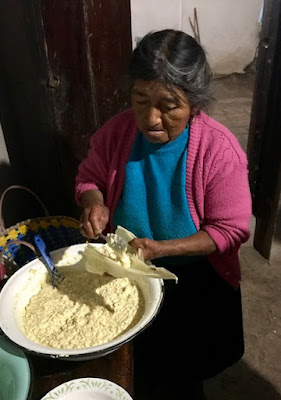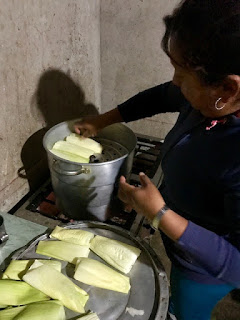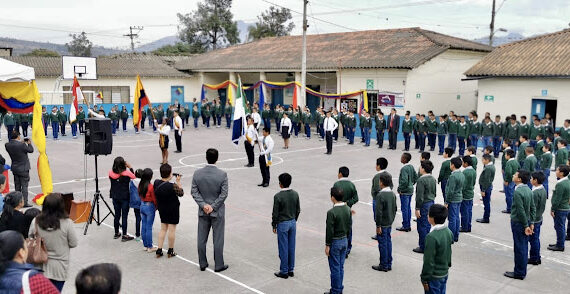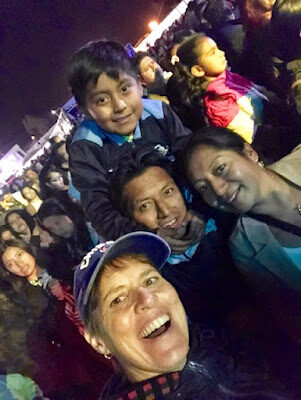 |
| Then we headed back to their farm with bags full of corn. |
| Margarita, Faby and Jose’s sister Veronica help Victor and Josefina with the corn. |
Step 4: Two adults and two children wash and grind the kernels in a traditional molino, or mill.
 |
| Alex and Pablo are helping with the molino. |
| I expected the ground corn kernels to make more of a dry corn meal, but what came out was a very wet mush. |
Step 5: To this mush, add:
24 eggs
1/3 of a small can of baking powder
2 cups melted butter
1 cup sugar
*1 super giant wooden spoonful of salt
*Before adding the salt, you can reserve some of the mush to make sweet humitas. Simply add more sugar and a bag of anis seeds.
Step 6: Stir all ingredients together with your hands.
 |
| Faby is demonstrating how to mix it all together with your hand. |
Step 7: If you don’t have a big enough stove, or you are making a lot of humitas, start a fire
in the kitchen for a second pot to steam.
 |
| Wilo is starting the fire. |
Step 11: The humitas are finished when the mush has formed a cake inside the husk.
Step 12: Enjoy your humitas with coffee and Queso Freso Cheese.
This recipe makes more than 100 humitas…
which is just right for a family to eat and share!

